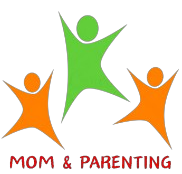As a parent, ensuring your newborn’s safety is paramount. Having a well-equipped first-aid kit tailored specifically for your little one can provide peace of mind and swift solutions during minor health concerns. Here’s a comprehensive guide to assembling a first-aid kit for newborns.
Digital Thermometer: A Precise Measure
A digital thermometer designed for infants is a necessity. Opt for a rectal thermometer as it offers the most accurate temperature reading for babies.
Nasal Aspirator: Clearing Congestion
Newborns often experience nasal congestion. A nasal aspirator or bulb syringe helps in gently clearing their nasal passages, aiding comfortable breathing.
Saline Drops: Gentle Relief
Keep saline drops on hand to help loosen and clear nasal mucus. They’re effective and safe for newborns.
Petroleum Jelly: Versatile Aid
Petroleum jelly proves useful for various purposes, such as lubricating the thermometer before use to ensure a gentle insertion.
Sterile Gauze Pads and Tape: Wound Care Basics
For minor wounds or cuts, sterile gauze pads and tape are essential. They assist in dressing and protecting the affected area.
Adhesive Bandages: For Tiny Injuries
Small-sized, sterile adhesive bandages are ideal for addressing minor cuts or scrapes on your newborn’s delicate skin.
Antiseptic Ointment: Preventing Infection
Having an antiseptic cream or ointment in your kit aids in preventing infection for any minor skin abrasions or wounds.
Cotton Balls and Swabs: Cleaning Aids
Sterile cotton balls and swabs are gentle tools for cleaning wounds or applying ointments safely.
Baby Nail Clippers or Scissors: Trim with Care
Specialized baby nail clippers or scissors are crucial for safely trimming your newborn’s nails to prevent accidental scratches.
Rubbing Alcohol or Hydrogen Peroxide: Disinfection Essentials
Keep rubbing alcohol or hydrogen peroxide to disinfect items or clean the area around a wound.
Diaper Rash Cream: Soothe and Protect
A reliable diaper rash cream is essential for soothing and protecting your newborn’s delicate skin from irritation.
Baby Oral Syringe: Administering Medication
A baby-friendly oral syringe assists in administering oral medications as prescribed by your pediatrician.
Emergency Contact Information: Quick Access
Always have a list of important phone numbers, including your pediatrician, local hospital, and poison control center, easily accessible in your kit.
First-Aid Manual: Expert Guidance
Include a first-aid manual specifically for infants to guide you through handling common health concerns effectively.
Creating a first-aid kit for your newborn ensures you’re prepared to handle minor health issues swiftly and effectively. Regularly check and restock the kit to ensure all items are in good condition and within their expiration dates. Prioritize your baby’s safety by being prepared for any unexpected health concerns.


